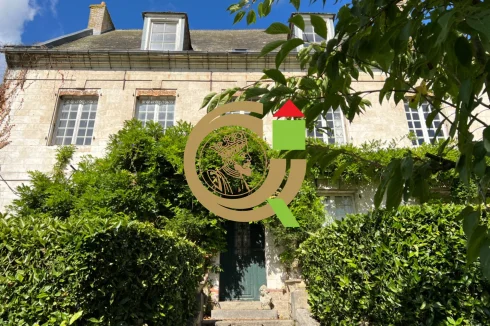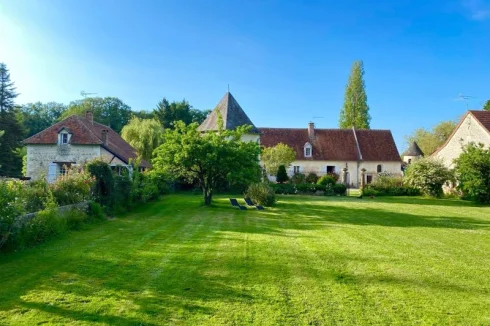Death Procedures in France
Tuesday 08 January 2019
A guide to death procedures in France, prepared in association with the volunteer group Bereavement Support Network.
Medical Report
If the death occurs naturally at home a doctor should be called, who will issue a medical report confirming death (certificat de décès), although it will not show the cause of death.
If the deceased had been fitted with a pacemaker the doctor must be informed so s/he can arrange for its removal. The removal of this is essential if the deceased is to be cremated.
In the event of a violent death, e.g. suicide or the result of an accident, then the local police/gendarmes must be informed.
Where death occurs in a hospital or private clinic the management will be responsible for issuing the confirmation of death.
In such circumstances, the body will usually be placed in a mortuary (chambre mortuaire). Use of the mortuary is free for the first 3 days, but there may be a fee for any extra days.
If the death occurred at home, a funeral parlour (pompes funèbres) should be contacted who will remove the body once the death certificate has been issued and place it in a private or municipal mortuary, which may cost more than a hospital mortuary.
In both cases, you will be asked to select some suitable clothing for the deceased to be dressed in.
No-one can impose the removal of a body to the deceased’s home or mortuary without permission from the family. The only exception to this is where a care home is unable to contact the family within 10 hours of the death. In such a case, it can arrange the transfer at the establishment’s cost.
Death Certificate
Within 24 hours the local mairie should be informed, i.e. the local municipal council where the death took place.
This can be done by a friend (it does not have to be the surviving spouse/partner), by a member of the funeral parlours staff, or by a care home or medical establishment if this is where the death occurred.
The informant must take his or her own identity papers (carte de séjour or passport) as well as the certificat de décès and the identity documents of the deceased.
These documents will be retained permanently by the mairie.
The following information will be needed:
- The full name of the deceased (maiden, not married name, in the case of a woman.)
- Time, date and place of death; the place must be in the commune whose mairie is being notified of the death.
- Normal residential address of the deceased.
- Place and date of birth and profession of the deceased.
- Full names of the deceased’s parents (maiden name only for the mother) and ages or a statement that they themselves are deceased.
- Full names of the spouse/partner or spouses if any (maiden names only for wife or wives).
Where possible, it is recommended that all details in a family are collected in advance, as these details are not always easy to collect in a hurry, particularly where the spouse/partner is already deceased or there have been two or more marriages.
The mairie will issue the death certificate (acte de décès). It is best to ask for 15–20 copies as they will all be needed.
If it is intended to transfer the body to a different commune for burial, the mairie of the receiving commune must give authorisation.
Burial/Cremation
The mairie of the place of death will provide authorisation for the coffin to be sealed (fermeture du cercueil) and the mairie of the receiving commune will issue the burial permit (permis d’inhumer).
However, if the deceased is to be cremated, then this is authorised by the commune where the death took place or, if the body was transported, where the coffin was sealed.
In certain circumstances a certificat d’hérédité may be granted if the deceased has left only few possessions and little money.
The burial or cremation must take place within six days. If relatives have to travel from abroad, decisions have to be made very rapidly. An extension to the 6-day rule may sometimes be granted in exceptional circumstances. Consideration may be given to the idea of a small family funeral, followed by a larger memorial service later. In some communes the body cannot be moved for 24 hours.
Burial in a cemetery requires permission from the mairie. If there is no plot already reserved, then this needs to be purchased at the mairie or the ‘bureau des cimetières’ for larger towns and cities. Note that plots (une concession) are sold for varying time-spans from 5 years to perpetuity with varying costs. To renew a concession, a request must be made within 2 years after the initial period runs out.
Funeral
If the deceased did not leave instructions, you need to choose a funeral parlour (pompes funèbres), either from your commune or from the department. Your doctor may recommend one, or you may obtain a list of those approved by the prefecture from the mairie or the offices of the cemeteries. The spouse/partner is advised to always have a second person with them.
You are able to ask more than one for an estimate which will be free. Make sure that any estimate includes all charges and labour – the average cost of a funeral is about €3,600. Some complementary health insurers (mutuelles) include a sum towards the cost of the funeral.
Repatriation
If repatriation is required to the UK, a relative or formally appointed representative must instruct a funeral parlour in the UK and France. Funeral parlours in both countries will need to liaise and so it is advisable not to arrange a date for the funeral in the UK before all the required procedures are completed. If the deceased is insured, contact the insurance company who will make the arrangements.
Some credit cards also provide insurance cover. Ask for precise details of the total cost of the return journey of the hearse, or the cost of air transport.
If the death is to be recorded at the General Registrar Office in London, contact the local British Consul.
Registration of the death in England is not compulsory; however, it is advised in case there are later, unforeseen problems with insurance companies or legal firms
It is much simpler in terms of cost and bureaucracy to take ashes back to the UK rather than a body. It is possible to send ashes through the post, drive them back or take them on an airline.
In all cases, you will need a certificate from the crematorium, a copy of the death certificate and permission from the prefecture. The funeral parlour will assist in obtaining the relevant permissions and ensuring the suitability of the urn.
You should also check with the airline and UK customs to check any procedures for example some airlines may insist the ashes are placed in the hold rather than taken as hand luggage.
When a body is repatriated to England or Wales from France, the funeral parlour will take care of the formalities including obtaining a ‘laissez-passer’ from the prefecture where the death occurred. They will also need the certificat de décès, a certificate provided by a doctor that the body has no contagious diseases and the authorisation from the mairie for the closure of the coffin. They will also need the deceased’s passport, birth certificate and/or marriage certificate. Some prefectures may demand a certificate from the police confirming that they were present when the coffin is closed. The body must be embalmed and the coffin be of a specific type for transportation.
If the death occurred in straightforward circumstances, there is no requirement for an inquest. If the body is to be cremated in the UK, the Home Office will issue a cremation order. In Scotland, it is the Scottish Office which gives permits for cremation. There is no equivalent order for burials.
A Coroner will only hold an inquest or postmortem examination if the death was not natural or the cause unknown. However, as cause of death is not stated on a French death certificate, the coroner may require a postmortem even if an autopsy has already been performed in France, as he will not have information from, or access to, the French judicial file.
Bank Accounts
The bank must be informed by lodging the death certificate within seven days.
The deceased’s bank account will be blocked, but only if it is not a joint account.
The next of kin can obtain up to approximately €5,000 from the deceased’s personal bank account on production of the death certificate, their own identification and the undertaker’s bill.
Should more money be needed the notaire can liaise with the bank to obtain a further advance.
You or the notaire should also contact ‘FICOBA’ (Fichier des comptes bancaires) which maintains lists of all accounts held by an individual. You will need to provide them with a copy of the death certificate, proof of identity and a document proving you are an heir.
Succession
Unless the estate is worth less than €5,000, within 7 days you must inform a notaire, who will be responsible for dealing with the succession and the issue of related certificates and determination in inheritance taxes, if due.
In cases of suspicious death, he/she is also able to obtain the details of the cause of death from the court, if required.
If the deceased has opted for the right that his/her will is subject to UK law, evidence of this must be provided to the notaire and it will be required for the will to be translated into French by an accredited translator, lists of whom can be obtained either from the mairie or at Traducteurs Assermentés.
Pensions/Benefits
If the deceased was receiving a French pension, within one week, the surviving spouse is obliged to contact the pension office and may be eligible to receive a spouse's pension, called a ‘pension de réversion’.
Where the deceased was receiving an English State Pension, the Pensions and Overseas Benefits Directorate of the Department of Work and Pensions must be informed, with as much detail as possible (name; date of birth and death; address; NI number; pension reference number as well as the spouse’s details).
A UK bereavement payment (lump sum) may be payable for up to 52 weeks from the date of death of the spouse/civil partner. Eligibility is dependent on your age, whether the deceased paid sufficient NI contributions and/or if the death was due to an industrial accident or disease.The deceased must be under retirement age.
The bereavement payment may be claimed up to 12 months from the date of death.
The surviving spouse of a person working in France or one who is registered unemployed or claiming disability benefits may be entitled to a temporary benefit under the French system from the CAF (Caisse d’allocations Familiales) called a ‘allocation de veuvage’. However, this does not apply to PACS or British civil partners.
If there are other occupational and/or private pensions, these companies must be notified to minimise any overpayments, whilst the residual spouse/partner’s pension if any is calculated and paid.
Similarly, any companies providing life insurances should be notified and benefits claimed.
Premium Bonds need not be cashed in at once but within one year.
A death certificate should accompany each letter.
Some UK Insurance companies find it difficult to accept the acte de dècès alone. They require a documented cause of death, presumably because some policies may be invalidated by a suicide.
Tax
If the deceased was a French tax payer or permanently resident in France, the local income tax office should be informed of the death, and within six months of the death, the survivor must provide the Declaration de Succession as well as the ‘Declaration des Revenus’. This is Form 2024N showing all income received by each member of the household between 1st January and the date of death. The notaire will normally complete and file these documents.
Where there is tax to be paid on the estate, the amount will be increased by a penalty of 10% if there is a delay in payment. In larger estates where the final details are not complete in the six month period, it is important to pay an estimate of the final sum, so that the 10% penalty is only paid on the outstanding amount.
A sealed letter left by the deceased with his/her private papers can be most helpful. Besides instructions for the funeral it should contain details of all the writer’s affairs. This list is not exclusive but should include most of the following: note of who holds any will; birth certificate; marriage certificate(s); divorce certificate(s); death certificate of spouse/partner; names and whereabouts of any children or other relatives.
Also included should be details about pensions, state benefits, stocks and shares, insurance policies, details of property owned and where other papers and keys may be found. The names and addresses of accountant, lawyer and stockbroker may be relevant for some people.
The Bereavement Support Network (BSN), helps English speaking residents throughout France to manage their bereavement or terminal illness. We are a group of committed, trained volunteers, with the common experience of having coped with bereavement and supported those facing death, or suffering from anticipatory grief as a carer. We listen - there is no fee for our time and support. You can contact us by mail at [email protected] or our website at Bereavement Support Network.
Thank you for showing an interest in our News section.
Our News section is no longer being published although our catalogue of articles remains in place.
If you found our News useful, please have a look at France Insider, our subscription based News service with in-depth analysis, or our authoritative Guides to France.
If you require advice and assistance with the purchase of French property and moving to France, then take a look at the France Insider Property Clinic.





